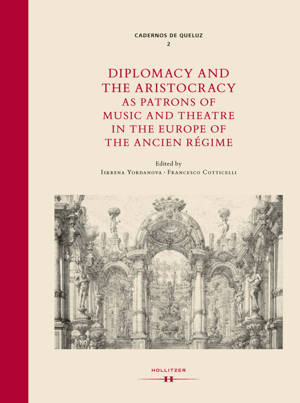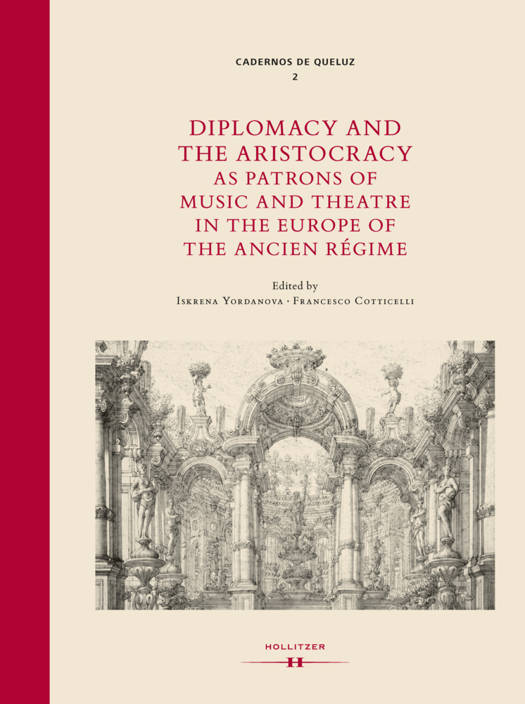
- Afhalen na 1 uur in een winkel met voorraad
- Gratis thuislevering in België vanaf € 30
- Ruim aanbod met 7 miljoen producten
- Afhalen na 1 uur in een winkel met voorraad
- Gratis thuislevering in België vanaf € 30
- Ruim aanbod met 7 miljoen producten
Zoeken
Diplomacy and Aristocracy as Patrons of Music and Theatre in the Europe of the Ancien Régime
€ 83,95
+ 167 punten
Uitvoering
Omschrijving
This volume explores the dense networks created by diplomatic relationships between European courts and aristocratic households in the early modern age, with the emphasis on celebratory events and the circulation of theatrical plots and practitioners promoted by political and diplomatic connections. The offices of plenipotentiary ministers were often outposts providing useful information about cultural life in foreign countries. Sometimes the artistic strategies defined through the exchanges of couriers were destined to leave a legacy in the history of arts, especially of music and theatre. Ministers favored or promoted careers, described or made pieces of repertoire available to new audiences, and even supported practitioners in their difficult travels by planning profitable tours. They stood behind extraordinary artists and protected many stage performers with their authority, while carefully observing and transmitting precious information about the cultural and musical life of the countries where they resided.
Specificaties
Betrokkenen
- Uitgeverij:
Inhoud
- Aantal bladzijden:
- 544
- Taal:
- Engels
- Reeks:
- Reeksnummer:
- nr. 7
Eigenschappen
- Productcode (EAN):
- 9783990127681
- Uitvoering:
- Hardcover
- Afmetingen:
- 180 mm x 247 mm
- Gewicht:
- 1280 g

Alleen bij Standaard Boekhandel
+ 167 punten op je klantenkaart van Standaard Boekhandel
Beoordelingen
We publiceren alleen reviews die voldoen aan de voorwaarden voor reviews. Bekijk onze voorwaarden voor reviews.







